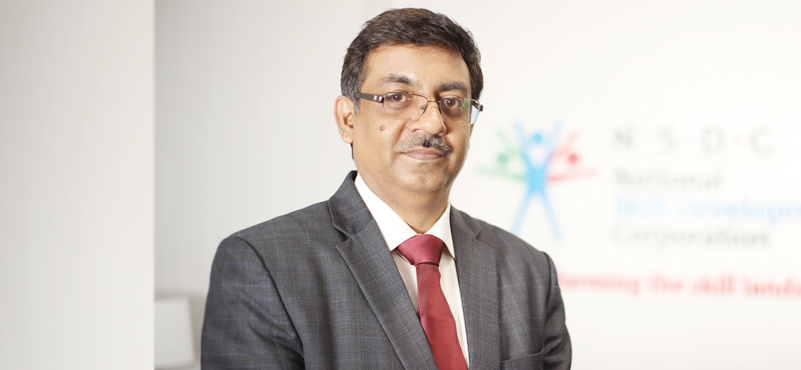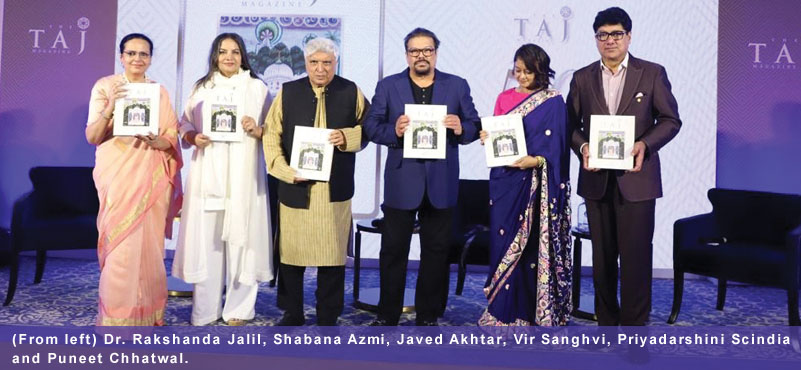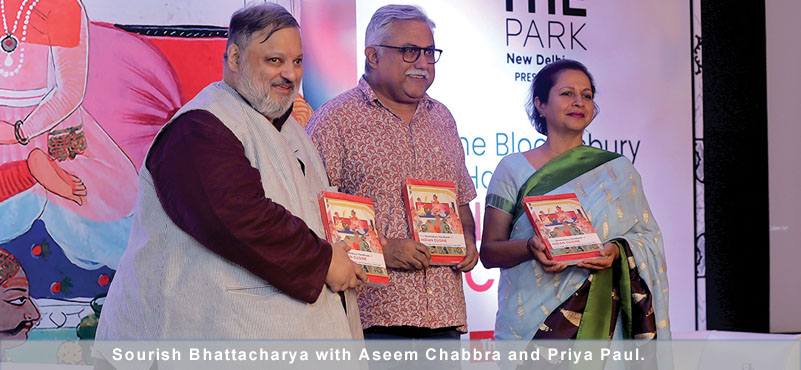Imagine experiencing Taj Mahal without a guide, said Manish Kumar, CEO, National Skill Development Corporation, in an interview with Tourism First. However automated and tech-centric the world may become, human capital will remain an invaluable asset that will drive customer loyalty and profitability.
As MD & CEO of National Skill Development Corporation, Manish Kumar brings to the job his experience at the World Bank, working as Country Coordinator and Senior Institution Development Economist, Water and Sanitation Programme, New Delhi. He also worked for the World Bank in Middle East and North African countries covering Lebanon, Iraq, Iran, Saudi Arabia, and Morroco. An Indian Administrative Service officer, like his fellow World Bank official, Parameswaran Iyer, who heads the Swachh Bharat Mission, he was with Tripura Government till 2011. Here, he speaks about the urgency of upgrading soft skills in the tourism industry where over 60 per cent of travel bookings were done digitally.
What are the skills required for 21st century tourism and hospitality industries in India, domestic and international?
The pace of globalization and technological advancement has greatly impacted consumer expectations in the tourism and hospitality industry, making it more dynamic and professionally compelling for want of skill enhancement. Merging technology with soft skills would be the future in the hospitality domain across the world.
From mobile check-in and geo-location, concession app and digital concierge to a hassle-free personalised interaction, the industry is moving towards ensuring that the customer experience is unique.
In 2019, almost 60 per cent of travellers in India booked trips via digital means. India is moving exponentially fast towards becoming a digitally advanced traveller nation in terms of digital tools being used for planning, booking and experiencing a journey. India’s rising middle class disposable incomes has continued to support the growth of domestic and outbound tourism. Increasing bent towards the use of digital apps like Zomato, Swiggy for ordering food has visibly transformed the restaurant and food delivery services.
Jack Ma, the founder of Alibaba, opened a futuristic hotel in Hangzhou, China called FlyZoo, run by robots with minimalistic human touch. According to this latest technology, facial recognition is the key to accessing the room and robots deliver food and drinks to the room. In the coming years, some of the sought-after skills to keep pace with digital transformation would be:
- Augmented Reality. 2. Virtual Reality. 3. Robotics. 4. Artificial Intelligence. 5. Analytical skills
How important is the human element in tourism?
Imagine experiencing the Taj Mahal without a guide? Complete replacement of human presence by digital means in hospitality experience is a far cry. The need for a personalised experience and emotional quotient attached with consumer expectations make human element exceptional in such a scenario.
However automated and tech-centric the world may become, human capital will remain an invaluable asset that will drive customer loyalty and profitability. Technology solutions can bolster efficiency and glitz is cool, but when these elements are stripped away, what remains are the individuals whose determination for excellence is irreplaceable when it comes to elevating guest satisfaction.
For sustained customer loyalty in hospitality, the right approach towards development of core skills and motivation that closely align with a hotel’s values are the solid foundation on which the aspirational industry is built for the long-term.
Tourism Industry is the single largest employer, supporting one in every 11 jobs worldwide according to World Tavel & Tourism Council. It is seen as a catalyst for economic development and job creation. Tourism and Hospitality Industry is recognised as a booming sector in India and overseas. As per IBEF report, by 2029, India’s tourism sector is expected to reach Rs 35 trillion (US$ 488 billion) with a growth of 6.7 per cent and accounting for 9.2 per cent of the total economy.
What is the skill gap in tourism currently?
In 2018, Travel & Tourism, being employment intensive, accounted for employment to approximately 31 million (both direct & indirect) people throughout the country and is one of the largest employers. This number has risen to over 40 million in 2019 and is expected to rise over 43 million by 2022. (IBEF report)
There is a huge skill gap in terms of trained manpower in tourism segment as per global standards. Tourism besides being a potentially large employment generator is also a significant source of foreign exchange for the country. This gives rise to a pressing requirement for skilled and efficient human capital in the tourism and hospitality sector.
Tourism & Hospitality sector can benefit largely from the National Apprenticeship Promotion Scheme (NAPS) which facilitates hiring of manpower as the apprentice and then training them according to organisation’s needs. The scheme has a great potential in creating employment opportunities and supporting the economy.
What are the immediate requirements and long-term requirements?
Given the challenge of planning and development issues in the tourism and hospitality industry such as sustainability, capacity building, strategic infrastructure planning and forecasting, the advances in information technology and the globalisation of tourism, there is a need for development of competence-based skills and policies.
- Immediate requirements:
Service delivery is king in the hospitality industry – but high levels of employee turnover significantly impedes proper execution while negatively impacting customer loyalty, property reputation and profitability.
The employee turnover rate in the sector was measured at 72.1 per cent the previous year, making consistent service delivery a tremendous challenge. Moreover, continuous staff change-over drains hotel budgets (due to continued expenditures on training). Short Term Training in skills tend to fill these gaps in the industry specially at the bottom of the pyramid.
- Long Term Requirements – Sustainability:
Long-term workforce development strategy within the broader context of improving competitiveness and sustainability of the industry to meet the increasing demand whilst complying with new stringent regulations in place.
A vision for transformation, the key focus being sustainable tourism which is defined as “tourism that respects both local people and the traveller, cultural heritage and the environment”.
Yet with its wide reach and cross cutting nature, tourism can contribute to most of the sustainable development goals (SDGs) like empowering women, fighting climate change or alleviating poverty in many communities around the world.
In the context of the universal 2030 Agenda for Sustainable Development and the SDGs, the aim is to support a change in policies, business practices and consumer behaviour towards a more sustainable tourism practice.
Where is the most demand for soft skills from?
While skills like accounting, financial analysis and marketing are essential skill sets for hospitality and tourism managers, soft skills are of paramount importance for succeeding in what is first and foremost a ‘people’s business’.
The hospitality skills involve not only direct interaction with clients, but also the management of teams where the goal is to satisfy customers in what is most decidedly a labour-intensive industry.
What are the lessons we can learn from other countries?
Visitors who are enchanted by the culture and cuisine of the country are simultaneously dismayed by its shabby streets and monuments.
In cleaning up India, Hon’ble Prime Minister has set the agenda to ensure that the country is ready to welcome many more tourists.
India has an electronic system that is making it easier for tourists to apply for visas online. Tourism-friendly countries such as Indonesia and Sri Lanka have already benefited from a relaxation of visa rules, so India can see the advantage.
India is majorly underserved by the hotel industry. The whole country has just over 100,000 hotel rooms while the greater New York area has almost 80,000, according to industry estimates. India will need to drastically increase this capacity if it is to meet the demands of new tourists, and this is where the state governments need to be proactive.
– Interviewed by Kaveree Bamzai




































